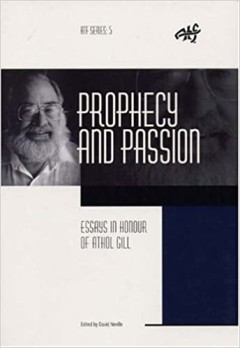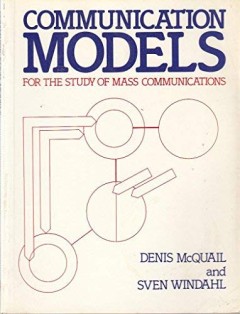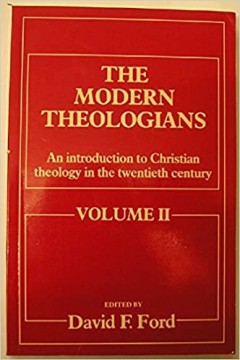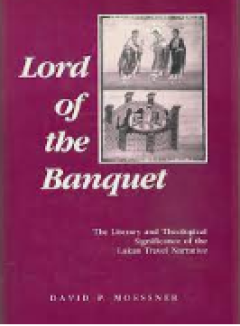Ditapis dengan

Prophecy and Passion: Essays in Honour of Athol Gill
Athol Gill--teacher, community-builder, advocate of justice, peacemaker, Christian gadfly! When he died a decade ago, the Australian church lost a creatively subversive native son who combined a tough-minded vision of radical discipleship with tenderhearted compassion for those whom Athol described as ‘society’s nobodies’. Athol Gill sought to show that participation in community was i…
- Edisi
- First Published
- ISBN/ISSN
- 1-920691-00-6
- Deskripsi Fisik
- xix + 427 pgs.; 20,5 cm.
- Judul Seri
- -
- No. Panggil
- 261 PRO p

Prophetic Dialogue: Identity and Mission Of The Divine Word Missionaries
- Edisi
- First Published
- ISBN/ISSN
- 978-3-87710-558-0
- Deskripsi Fisik
- 490 pgs.; 23,5 cm.
- Judul Seri
- -
- No. Panggil
- 266 SIL p
- Edisi
- First Published
- ISBN/ISSN
- 978-3-87710-558-0
- Deskripsi Fisik
- 490 pgs.; 23,5 cm.
- Judul Seri
- -
- No. Panggil
- 266 SIL p

Social Justice Reconsidered: The Problem Of Appropriate Precision in a Theory…
Social Justice Reconsidered is an attempt to refocus debate about justice. David Mapel argues that some of the more ambitious theories of justice have failed to establish themselves because they seek too high a degree of precision, because they have tried to provide criteria for ranking all possible (or feasible) social systems according the the justice of their distributions.
- Edisi
- First Published
- ISBN/ISSN
- 0-252-01598-3
- Deskripsi Fisik
- x + 169 pgs.; 24 cm.
- Judul Seri
- -
- No. Panggil
- 320.011 MAP s

Political Physics: Deleuze, Derrida and The Body Politic
Political Physics analyses the work of two of the most influential thinkers of our time - Jacques Derrida and Gilles Deleuze. The book takes the reader on a transversal journey, crossing the boundaries of philosophy and science. Political Physics explores the limits and strengths of Derridean and Deleuzean philosophical approaches. Focussing on their differing approaches to the question of the …
- Edisi
- First Published
- ISBN/ISSN
- 0-485-00426-7
- Deskripsi Fisik
- ix + 245 pgs.; 23,5 cm.
- Judul Seri
- -
- No. Panggil
- 320.01 PRO p

The Church, Community of Salvation An Ecumenical Ecclesiology. New Theology S…
Ecclesiology is now taken for granted as an area of theological research. Before the modern age, however, the Church felt no need to define itself. What Father Tavard presents in this work is a systematic organization of the essential Christian beliefs about what the Church has been, is, and ought to be. It focuses on the awareness of being" Church that is inseparable from the profession of the…
- Edisi
- First Published
- ISBN/ISSN
- 0-8146-5789-3
- Deskripsi Fisik
- 264 pgs.; 22,5 cm.
- Judul Seri
- -
- No. Panggil
- 262 TAU c

The Political: Blackwell Readings in Continental Philosophy
- Edisi
- First Published
- ISBN/ISSN
- 0-631-21547-6
- Deskripsi Fisik
- xi + 303 pgs.; 24,5 cm.
- Judul Seri
- -
- No. Panggil
- 320.1 POL p
- Edisi
- First Published
- ISBN/ISSN
- 0-631-21547-6
- Deskripsi Fisik
- xi + 303 pgs.; 24,5 cm.
- Judul Seri
- -
- No. Panggil
- 320.1 POL p

Communication Models For the Study of Mass Communications
- Edisi
- FIrts Published
- ISBN/ISSN
- 0582295726
- Deskripsi Fisik
- vi + 109 hlm.; 20,8 cm
- Judul Seri
- -
- No. Panggil
- 302.23 MCQ c
- Edisi
- FIrts Published
- ISBN/ISSN
- 0582295726
- Deskripsi Fisik
- vi + 109 hlm.; 20,8 cm
- Judul Seri
- -
- No. Panggil
- 302.23 MCQ c

Testimony of Hope: The Spiritual Exercises of John Paul II
- Edisi
- -
- ISBN/ISSN
- 0819874078
- Deskripsi Fisik
- xxi + 221 hlm.; 20.3 cm
- Judul Seri
- -
- No. Panggil
- 269.692 THU t C-1
- Edisi
- -
- ISBN/ISSN
- 0819874078
- Deskripsi Fisik
- xxi + 221 hlm.; 20.3 cm
- Judul Seri
- -
- No. Panggil
- 269.692 THU t C-1

The Modern Theologians Volume 2: An Introduction to Christian Theology in th…
- Edisi
- First Published
- ISBN/ISSN
- 0-631-16807-9
- Deskripsi Fisik
- xi + 330 pgs.; 23 cm.
- Judul Seri
- -
- No. Panggil
- 230.0904 MOD m.2
- Edisi
- First Published
- ISBN/ISSN
- 0-631-16807-9
- Deskripsi Fisik
- xi + 330 pgs.; 23 cm.
- Judul Seri
- -
- No. Panggil
- 230.0904 MOD m.2

Lord of the Banquet
- Edisi
- First Published
- ISBN/ISSN
- 0-8006-0893-3
- Deskripsi Fisik
- xviii + 358 pgs.; 23,5 cm.
- Judul Seri
- -
- No. Panggil
- 226.406 MOE l
- Edisi
- First Published
- ISBN/ISSN
- 0-8006-0893-3
- Deskripsi Fisik
- xviii + 358 pgs.; 23,5 cm.
- Judul Seri
- -
- No. Panggil
- 226.406 MOE l
 Karya Umum
Karya Umum  Filsafat
Filsafat  Agama
Agama  Ilmu-ilmu Sosial
Ilmu-ilmu Sosial  Bahasa
Bahasa  Ilmu-ilmu Murni
Ilmu-ilmu Murni  Ilmu-ilmu Terapan
Ilmu-ilmu Terapan  Kesenian, Hiburan, dan Olahraga
Kesenian, Hiburan, dan Olahraga  Kesusastraan
Kesusastraan  Geografi dan Sejarah
Geografi dan Sejarah